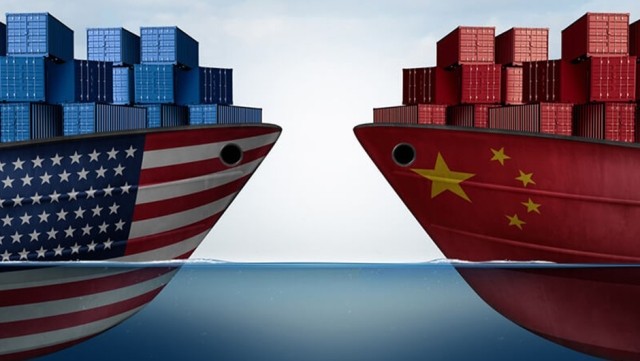Ahead of next week’s World Trade Symposium, Rebecca Harding looks at why common standards in trade can’t be understated

The importance of common standards in trade cannot be understated. At present, the world’s trade system is being undermined by the threat of global trade wars, and particularly the conflict between the US and China. As the disputes continue, there are challenges to the rules-based structure which has governed the practices around global trade. But equally, as more trade becomes digital and more trade finance digitised, there is a potential for the fragmentation of regulatory systems and lack of transparency in supply chains. This quite rightly raises concerns in compliance departments, but also undermines the investability of trade finance as an asset class.
Let’s take goods trade first, and, if ever we need a reminder of the importance of common standards in trade then Brexit is it. For all the talk of “level playing fields” and “ambitious free trade agreements”, the fact remains that it is not possible to have global supply chains that operate according to different standards. If, just by way of example, a UK manufacturer of valves for car engines operates to a different set of standards to an engine manufacturer based in, say, Germany, then the engine won’t work. The UK manufacturer loses their contract.
The EU accounts for 48% of the UK’s goods trade. 60% of the UK’s trade with Europe is focused in five strategic sectors: automotives, aerospace, pharmaceuticals, electronics and mechanical engineering. These are global supply chains where Europe dominates, accounting, for example, for 49% of all automotive exports in the world, over 60% of all pharmaceutical exports and over half of all aerospace exports. These are also among the UK’s biggest export sectors.
They are also not supply chains that the UK can deliver end-to-end by itself. In other words, there is no such thing as a level playing field in these sectors because they are bound either by EU rules, since most of the supply chains originate in Europe, or by international standards, as in the case of aerospace. UK businesses will simply have to comply. This is not a matter of competition; it is a matter of being in the global supply chains in the first place.
These are the UK’s biggest sectors and also, as is the case with cars, aerospace and pharmaceuticals, among our biggest exports to the US, China and Japan. While there may be some regulatory divergence in, for example, agricultural standards on imports to enable trade with the US, it would never be to have divergent standards in other areas because that in itself would render whole sectors incompatible with global supply chains.
Common standards in trade finance are just as important, however, for two key reasons. The first is risk management. For example, at present we cannot track cross-border trade finance if it is on a digital platforms, nor can we definitively say how much trade finance there is globally by sector, by geography or by trade finance product. This means that we do not know how trade finance is changing or, indeed, how much of it funds risky areas like dual-use goods, or priority areas like sustainable supply chains. These are vital aspects for the reputation of trade finance and the perception of its risks.
The second is that, without common standards, trade finance remains uninvestable as an asset class. Bank-intermediated trade finance itself represents some US$7.5tn globally. Yet this market is under-invested by non-banks and while it is increasingly securitised, it is not regarded by the investment community as a fully-fledged asset class. There is insufficient transparency on deal flow, importers and exporters and types of trade finance at a micro level.
At a ‘global macro’ level the market does not have a universally agreed price or volume so movements in it cannot be traded. It is not clear when it is growing nor is it clear what the drivers of this growth are. Sometimes trade and trade finance move counterintuitively: just by way of example, it is acknowledged amongst economists that trade is unlikely to have grown as quickly in 2018 or so far 2019 as it did at the end of 2017. However, the sentiment largely held by trade finance professionals is that the trade war has actually been good for the sector as businesses have sought to divert trade away from either sanctioned countries or countries that have higher tariffs.
Banks do not finance trade in identical ways and do not collect standardised data. Moreover, and quite understandably, banks have been historically reluctant to share data. For as long as this remains the case the sector will continue to appear risky and continue to be under-invested. Furthermore, without standardised, aggregated data, banks cannot see where they compare to an industry benchmark so they have no idea of their performance and no capacity to kick back at regulators or politicians when they formulate policies that are not in the long-term interests of a rules-based system.
As time goes by and as technology improves, this situation becomes increasingly unsustainable.

